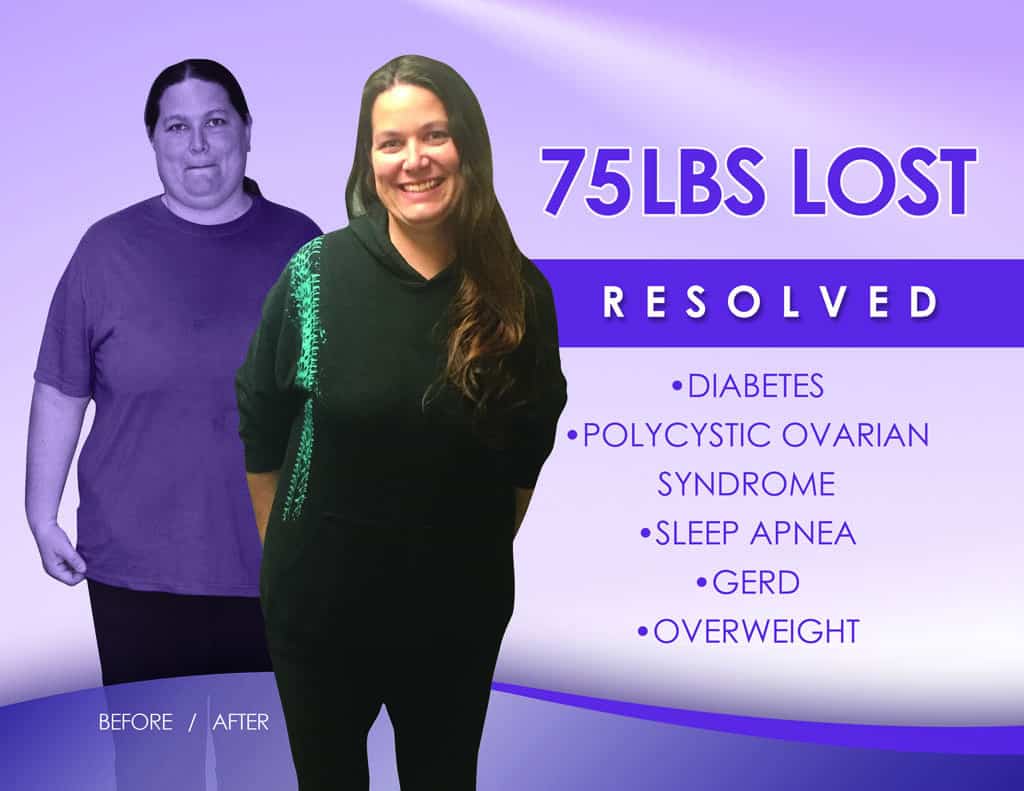Surprises are only nice in certain situations and usually not in situations like surgery or health care. Far better to have clear expectations for what will happen after weight-loss surgery from the moment you wake up until the one-year anniversary and beyond.
Guidelines & Clarification
We do our best to provide good guidelines and the range of potential expectations after surgery to every person who is embarking upon their weight loss journey or their metabolic surgery to reverse type two diabetes. Most people have a very tolerable experience with an expected amount of postoperative discomfort, but nothing they cannot handle. The recovery is smooth, and the benefits are long lasting. But let us take a deeper look.
Right after surgery, you will wake up in the recovery room where there is a one-on-one nurse who specializes in helping people wake up right after anesthesia and attend to their symptoms and safety. Most people describe the odd sensation of having just blinked their eyes once from the last memory in the pre-operative holding area until this moment now, when they are coming to grips with the fact that surgery is all over. Postoperative pain is totally normal, but it should be manageable. People are often surprised to learn that doctors describe pain as being extremely subjective and varying widely from person to person. Two similar individuals can undergo the exact same procedure and one of them can experience almost no pain and the other can experience severe pain, so you should expect that the doctors and nurses are looking for guidance from you before administering too much pain medication.
For most people there will be a two or three-hour stay in the recovery room before a quick journey upstairs to the regular hospital room. Some people take a nap for a few hours, and other people like to get up right away and take the first walk around the hospital ward within a few hours. Our advice is to at least get out of bed and do a little walking that very first day even if it hurts to get up. It always feels better to stand up and walk a little, stretch your legs, take some deep breaths, and tell your body that it is time to start thinking about recovery.
Most people will get up to use the bathroom a couple of times and by the following morning, the expectation is that everyone will take some longer walks around the hospital ward, sip on liquids and take any oral medications they require.
Generally, there is some intravenous solution running for the first day but there are not often any other tubes, drains, or catheters for laparoscopic surgery. By mid-day following the sleeve gastrectomy surgery, gastric bypass surgery, or duodenal switch surgery, most people are ready to discharge home. A loved one will collect you and take you home where hopefully you have done some work preparing. It is nice to have a good lineup of sugar-free beverages, broth, flavored waters, things like that. The important things are to continue to get up and walk several times a day and sip fluids to remain hydrated. Your doctor will have given you a diet to follow, and for most programs this means some clear liquids in the first couple of days with a transition to smoothies or protein shakes and resumption of vitamins and routine medications.
Blood sugar may drop quite a bit if you were previously battling diabetes, so it is important to check the blood sugar and not give too much medical treatment such as insulin. Blood pressure may also fall somewhat. If you have been taking higher doses of blood pressure medication it might be necessary to reduce the treatment, so you will not feel lightheaded. This is important to review with your doctor before surgery. You should also remain in contact if any questions arise after surgery.
At our center, we like to ask every patient to “buy in“ to an intensive three-month diet plan that emphasizes low carbohydrate protein shakes and foods with vitamins and minerals and plenty of exercise. That way, nearly everyone will see quite a significant weight loss result after 90 days and the momentum can build.
In the months to follow, you will hopefully be noticing significant loss of weight and improvement in energy level and activity. Follow up visits with your center, surgeon or physician assistant are usually more frequent in the beginning. We like to see people approximately one week and one month after surgery, then at approximately three months intervals for the first year. Multivitamins with iron plus and supplements of B complex vitamins and vitamin D are often prescribed, and these are often tested with blood draws after a few months.
Ingraining new habits of increased daily physical activity such as a brisk walk seven days a week becomes the primary mission. By the time the one-year anniversary rolls around, most people have lost somewhere in the neighborhood of two-thirds of their excess body weight. The health benefits have already begun, but the dividends keep paying off for years to come.
If you’re considering weight-loss surgery, you’re bound to have many questions. Gathering accurate information relevant to your circumstances is an important first step, and we hope you’ll consider contacting Nevada Surgical today to learn more.




